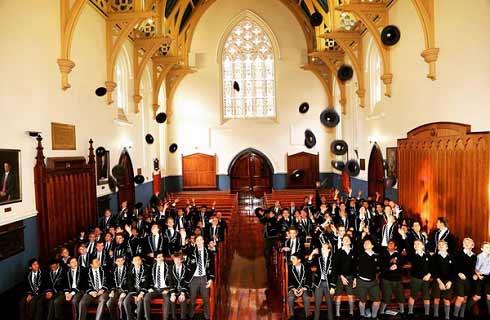Juris Doctor in Regulatory Law [Track]

学历文凭
Juris Doctor

专业院系

开学时间

课程时长

课程学费

国际学生入学条件
All applicants must submit transcripts to LSAC from any post-secondary education they have attended since leaving high school. Applicants may apply during their final year of undergraduate study, in which case acceptance is contingent upon the applicant's being awarded a baccalaureate degree prior to matriculation at the law school (unless the student is participating in a 3+3 program).
2. CAS Report with LSAT/GRE
Applicants will need to use the CAS Recipient Code for Antonin Scalia Law School, George Mason University. The Code is 5827.
The CAS Report must reflect (a) all work done at undergraduate institutions, signifying that a baccalaureate degree has been or will be awarded before the start of the academic year for which admission is being sought and (b) if the applicant is applying with the LSAT, the CAS report must reflect the results of at least one LSAT taken within 5 years prior to the date of application submission.
The applicant has sole responsibility for meeting all LSAC's requirements. Failure to register properly, maintain registration throughout the admissions process, or provide transcripts and other related materials to LSAC can delay or prevent release of a report to a law school. Scalia Law is not responsible for incomplete or missing reports and will not contact applicants about incomplete or missing reports.
TRANSCRIPTS within the CAS Report- All applicants must submit transcripts to LSAC from any post-secondary education they have attended since leaving high school. Applicants may apply during their final year of undergraduate study, in which case acceptance is contingent upon the applicant's being awarded a baccalaureate degree prior to matriculation at the law school (unless the student is participating in a 3+3 program).
If an applicant has completed post-secondary study outside of the U.S., the applicant must use the Credential Assembly Service for international transcript evaluation.
3. LSAT/GRE- All applicants must take either the LSAT or GRE. Applicants with both LSAT and GRE scores should submit LSAT scores only, in such cases, GRE scores will not be considered.
The admissions process at George Mason University Antonin Scalia Law School is very competitive and highly selective due to the volume of applications and the limited number of seats in the entering class. Members of the Admissions Committee review and consider each application for admission in its entirety. Two of the primary factors considered in the admissions process are performance on a standardized test, either the Law School Admissions Test (LSAT) or the Graduate Record Examinations (GRE), and undergraduate grade point average.
Other factors that are considered include difficulty of undergraduate major, undergraduate institution, possession of advanced degrees, writing ability (as indicated in the personal statement and Mason statement), recommendations, extracurricular activities, employment experience, demonstrated commitment to public and community service, leadership skills, history of overcoming personal or professional challenges and other academic, personal and professional achievements.
TOEFL: Minimum of 90 in the iBT test (100 or above highly preferred)
OR IELTS: Minimum of 6.5 (7.5 or above highly preferred),
IDP—雅思考试联合主办方

雅思考试总分
6.5
- 雅思总分:6.5
- 托福网考总分:90
- 托福笔试总分:160
- 其他语言考试:Duolingo: Minimum of 110
CRICOS代码:
申请截止日期: 请与IDP联系 以获取详细信息。
课程简介
相关申请
 预科
预科 奖学金
奖学金 实习机会
实习机会 在校学习
在校学习 跨境学习
跨境学习 校园授课-线上开始
校园授课-线上开始 在线/远程学习
在线/远程学习
开学时间&学费
学费信息仅供参考,请与IDP联系以获取详细信息
| 开学时间 | 时长 | 学费 | 地点 |
|---|
学校排名

世界排名301
数据源:
泰晤士高等教育世界大学排名
关于乔治梅森大学-INTO USA

就读乔治梅森大学,为在高要求职场的未来成功奠定基础。大学旨在推动学生实现自我目标,取得成功。乔治梅森大学位于弗吉尼亚州费尔法克斯,距离华盛顿特区很近,是学生体验商业、政府、科研和文化的理想场所。该校在《2025年美国新闻与世界报道》评选的美国最具多元化的大学中名列前10位,在最具创新性的院校排名中位居第25位。华盛顿特区让学生得以沉浸于美国首都的深厚文化底蕴。作为科技、政治、科学与传媒的核心枢纽,这里为学生提供了弥足珍贵的行业实践机遇。您可探访白宫等标志性景观,免费畅游史密森尼博物馆群,在2200余家餐厅寻觅家乡风味,或参与多元文化庆典活动。从费尔法克斯出发,仅需24分钟即可抵达华盛顿特区,在尽享都市资源的同时,仍能体验当地咖啡馆与精品买手店的独特魅力。乔治梅森大学为国际学生提供预科学习项目以助其满足入读学位学习的条件。国际直升大二和本科转学学习项目意味着学生在发展学术和英语语言技能的同时可获得学分。研究生学习项目为追求硕士学位的学生提供帮助。可保证学生从到达前到毕业的每一步将获得支持。学生将就读于拥有学生宿舍和餐厅等大量服务和资源的梅森全球中心 (ACGC)。学生也可使用校园图书馆和健身空间等校园设施。大学特地为预科学习项目学生提供大量有用的奖学金,最高达20000美元的奖学金为成绩优异的学生提供学费开支帮助。
本校相关课程

学术英语(1学期)
学历文凭
English
开学日期
课程费用总额


Doctor of Philosophy in Biodefense
学历文凭
Ph.D.
开学日期
课程费用总额


学术英语(1学期)
学历文凭
English
开学日期
课程费用总额


Bachelor of Science in Recreation Management- Individualized
学历文凭
Bachelor Degree
开学日期
课程费用总额


Masters of Science in Accounting
学历文凭
Masters Degree
开学日期
课程费用总额


学术英语(2学期)
学历文凭
English
开学日期
课程费用总额

其他相关课程

法学学士[一般]
 滑铁卢大学
滑铁卢大学学历文凭
Bachelor Degree
开学日期
课程费用总额


人类研究哲学博士
 劳伦森大学
劳伦森大学学历文凭
Ph.D.
开学日期
课程费用总额


人类动力学硕士
 劳伦森大学
劳伦森大学学历文凭
Masters Degree
开学日期
课程费用总额


律师助理研究生证书
 德恒学院
德恒学院学历文凭
Graduate Certificate
开学日期
课程费用总额


调解研究生证书-替代性纠纷解决
 德恒学院
德恒学院学历文凭
Graduate Certificate
开学日期
课程费用总额


人权文学士
 温尼伯大学
温尼伯大学学历文凭
Bachelor Degree
开学日期
课程费用总额










 美国
美国